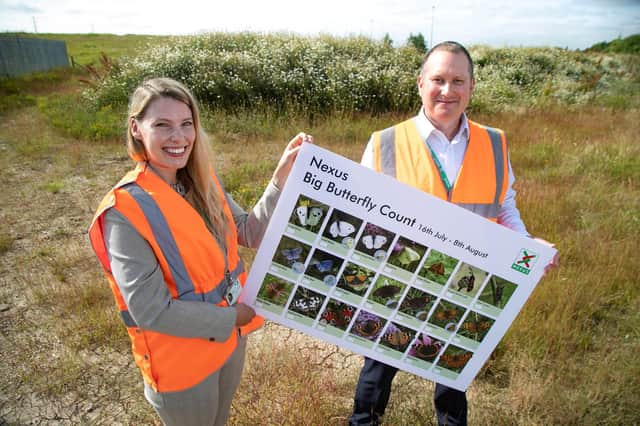Butterfly conservation project created in North Tyneside


The one-acre habitat at Howdon Metro depot was established after the former landfill site was found to be home to an increasingly rare butterfly called a Dingy Skipper.
Nexus, which owns and manages Metro, ensured that a part of the site was designated for butterfly conservation when it got the green light to build the new depot.
Advertisement
Hide AdAdvertisement
Hide AdAnd the project has now been shortlisted for an environmental award by the Chartered Institute of Ecology and Environmental Management (CIEEM).
Metro Development Director, Neil Blagburn, said: “Protecting this rare species of butterfly was one of the conditions we needed to comply with when building our new temporary Metro depot at Howdon.
“Ecological surveys showed that an area of the site is home to the Dingy Skipper, which is native to the UK but is becoming increasingly rare.
“The last thing we wanted was the depot project to negatively impact on this important species, so a plan was drawn up to create a segregated butterfly conservation area within the site, well away from the main building and train movements.
Advertisement
Hide AdAdvertisement
Hide Ad“The habitat was constructed by our contractors after detailed ecological assessments and it has been a huge success. We are now signed up to the nation’s big butterfly count and will keep an eye on how many we see in the area.
“All of the work that went into this element of the project has been nominated for a prestigious environmental award, which is great recognition for the extraordinary length we have gone, to ensure our depot project provided a safe haven for the local wildlife.”
Nexus’ consultants, Atkins, is undertaking surveys of the whole site and are counting the butterflies which in turn is supporting the nation’s Big Butterfly Count, which is the world’s largest butterfly survey.
Nexus acquired planning consent from North Tyneside Council in 2018 to construct a new satellite rail depot at Howdon and part of the conditions were to create a Dingy Skipper butterfly habitat on the site to reduce the environmental footprint of the creation of the depot.
Baseline ecological studies carried out in 2017 consistently recorded Dingy Skipper utilising open mosaic habitats that have established across the former landfill site.